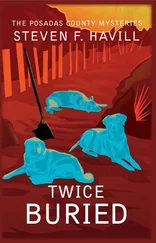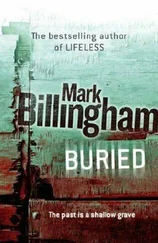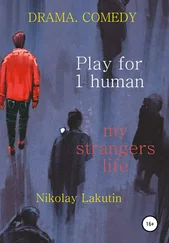Leighton Gage - Buried Strangers
Здесь есть возможность читать онлайн «Leighton Gage - Buried Strangers» весь текст электронной книги совершенно бесплатно (целиком полную версию без сокращений). В некоторых случаях можно слушать аудио, скачать через торрент в формате fb2 и присутствует краткое содержание. Жанр: Полицейский детектив, на английском языке. Описание произведения, (предисловие) а так же отзывы посетителей доступны на портале библиотеки ЛибКат.
- Название:Buried Strangers
- Автор:
- Жанр:
- Год:неизвестен
- ISBN:нет данных
- Рейтинг книги:4 / 5. Голосов: 1
-
Избранное:Добавить в избранное
- Отзывы:
-
Ваша оценка:
- 80
- 1
- 2
- 3
- 4
- 5
Buried Strangers: краткое содержание, описание и аннотация
Предлагаем к чтению аннотацию, описание, краткое содержание или предисловие (зависит от того, что написал сам автор книги «Buried Strangers»). Если вы не нашли необходимую информацию о книге — напишите в комментариях, мы постараемся отыскать её.
Buried Strangers — читать онлайн бесплатно полную книгу (весь текст) целиком
Ниже представлен текст книги, разбитый по страницам. Система сохранения места последней прочитанной страницы, позволяет с удобством читать онлайн бесплатно книгу «Buried Strangers», без необходимости каждый раз заново искать на чём Вы остановились. Поставьте закладку, и сможете в любой момент перейти на страницу, на которой закончили чтение.
Интервал:
Закладка:
Ribeiro’s new name was Eduardo Noronha, and his birth-place was listed as Sao Paulo. His mother had foreseen no problem with that and there wouldn’t have been one had he not come up against a zealous young border-control agent named Renato Wagner.
Ribeiro, who’d never been abroad in all of his life, didn’t know the drill. He handed over his new passport for perusal, but he didn’t hand over his ticket.
“I need the ticket, too,” Wagner said.
One of the tasks of the inspectors was to make sure that the visitor had paid his departure tax. The evidence of that was a stamp affixed to the ticket.
“Oh, desculpe, ” Ribeiro said, and reached into his pocket.
The one word was enough. Desculpe, sorry, had been pro-nounced with a slurry, sibilant “s.” The only people who talked like that were cariocas.
Wagner double-checked the birthplace on the passport. Sao Paulo. He had it right the first time he’d looked. Something was fishy.
“You from Rio de Janeiro?” he asked.
“Born and bred,” Ribeiro said proudly.
Wagner nodded. The dumb bastard hadn’t even bothered to memorize his history. He glanced at the flyer that had been taped under the counter not two hours earlier. It was out of sight of the passengers, but in clear view of all of the agents.
“Uh-huh,” he said, and pushed a button.
Chapter Forty-six
Arnaldo expected the drug to wear off, but some-how it didn’t. It was a mystery. They hadn’t fed him, so he couldn’t be taking it in that way. And he hadn’t seen a sin-gle soul in all the time he’d been in the cell, so he didn’t think they were injecting him.
And that was another mystery, the time he’d been in the cell. He had no way of knowing, no way of keeping track. They’d kept his watch. The single lamp in the ceiling never went off, so there was no way of distinguishing when it might be day and when it might be night.
The lamp was enclosed in a steel cage, so the prisoners couldn’t get at it. Not that he would have bothered. The light was so dim that he had no problem falling asleep.
And that’s about all he wanted to do. Sleep.
So, maybe that was the way they were doing it. Waiting until he was asleep, and then sneaking in and putting a mask over his face or a needle in his arm. Or maybe they were pump-ing in some kind of gas through the vent up near the light. Or maybe it was in the water. He doubted it was the water. There was just the one tap and it looked like a normal tap. They hadn’t given him a glass. To drink he had to bend over the sink.
But drugging him they were. He was sure they were get-ting it into him in one fashion or another. There was no other explanation for the way he felt. He was dazed and dis-oriented. And he was in no condition to put up a fight when the two of them finally came for him.
It wasn’t the carioca. It was a man and a woman. The woman appeared to be in her early thirties and the man maybe a decade older. Both were wearing green medical scrubs. The gurney they’d brought was equipped with leather restraints that buckled around his upper torso, wrists, thighs, and shins. By the time they’d finished, he was all but immo-bile. The ride down the hall took only a few seconds. They wheeled him into a tile-walled room smelling of hospital and positioned the gurney next to a metal table surmounted by an immense surgical light.
“Your doctor will be with you in a moment,” the guy in green scrubs said.
And laughed.
Hector Costa stared into the mirror and rubbed the bristles on his chin. He didn’t like the idea of being in the office unshaven. The bags under his eyes made him look as if he’d had a long night of drinking behind him. He splashed some water on his face, dried it with a paper towel, and returned to where his uncle was still working the phone.
“I’m going down to the padaria for breakfast and a razor. Want anything?”
“Coffee with milk and a buttered roll,” Silva said, and started dialing the next number on his list.
HECTOR WAS sitting at the counter, reading the morning paper, and sipping cafe com leite, when his uncle stepped up behind him and grabbed his arm.
“We’ve got him,” Silva said.
“Ribeiro?”
“He was trying to board a flight to Paraguay. They’re hold-ing him at Guarulhos. Come on.”
There was a car waiting in front of the office, Babyface Goncalves behind the wheel. Babyface started rolling even before Hector had fastened his seat belt.
Sao Paulo shares with Bangkok the distinction of having the most serious traffic gridlocks in the world. Isolated inci-dents make those gridlocks even worse.
The isolated incident du jour was a tractor trailer whose driver had misread the height of a viaduct over the marginal, one of the belt roads that rimmed the city. The cab of the big truck passed under the Limao Bridge with more than twenty centimeters to spare. The forty-foot container it was pulling did not. The leading edge of the container hit the concrete abutment at a speed of almost fifty kilometers an hour, and stuck there, bringing the rig to an immediate stop and block-ing one lane of traffic.
The driver, who hadn’t been wearing a seat belt, had been propelled out of his cab by inertia. He’d flown through the windshield and come to rest on the other side of the dividing island, where he’d been promptly run over by a delivery van.
The driver of the van, in a desperate attempt to avoid the collision, had stood on his brakes and been rear-ended by another tractor trailer that had jackknifed over the entire road, blocking it in both directions.
When Babyface rolled to a stop, they had almost five kilo-meters of stalled vehicles in front of them. The traffic behind them was bumper to bumper, so they were effectively trapped. Television helicopters were converging at a distant point directly ahead. Silva, seated in front next to Babyface, switched on the radio. The accident was on all of the traffic reports:
“. . expected to impede the free flow of traffic for at least the next four hours,” the announcer said. “Drivers are advised to avoid the belt road at all costs. Seek alternative routes.”
That was all Silva had to hear. He punched the button to shut the radio off, and he didn’t do it gently. “Call for a god-damned helicopter,” he said.
Babyface did. But it took almost thirty-five minutes to get there and find a suitable place to land. The spot chosen by the pilot was a construction site about three hundred meters from their car. Babyface stayed behind the wheel while Hector and Silva transferred to the aircraft.
After that, it was easy sailing. A ten-minute flight brought them to Guarulhos. A golf cart was waiting on the tarmac. They were met by a female agent with a federal police badge pinned to her black blazer. She brought them to the interro-gation room, one level down from the arrival hall.
It was a windowless space with a television camera mounted high in one corner, a steel table, and four wooden chairs, all bolted down. There were two other federal agents in the room, both in suits, both with badges pinned to their lapels, both leaning against the wall, and both looking down at Ribeiro.
One of the federal agents was Antonio Moreira, the guy who headed the federal police assigned to Guarulhos. He was one of the first people Silva had spoken to after sending out the advisory e-mail. The other agent was a young guy who looked like he could have been Babyface’s younger brother. If it hadn’t been for the badge, Silva might have taken him for a teenage bystander.
“You got the wrong guy,” Ribeiro was saying when Silva and Hector entered the room. He’d shaved off his mustache, streaked his black hair with gray, and ditched the Flamengo medallion, but it was him, no doubt about that.
Читать дальшеИнтервал:
Закладка:
Похожие книги на «Buried Strangers»
Представляем Вашему вниманию похожие книги на «Buried Strangers» списком для выбора. Мы отобрали схожую по названию и смыслу литературу в надежде предоставить читателям больше вариантов отыскать новые, интересные, ещё непрочитанные произведения.
Обсуждение, отзывы о книге «Buried Strangers» и просто собственные мнения читателей. Оставьте ваши комментарии, напишите, что Вы думаете о произведении, его смысле или главных героях. Укажите что конкретно понравилось, а что нет, и почему Вы так считаете.












